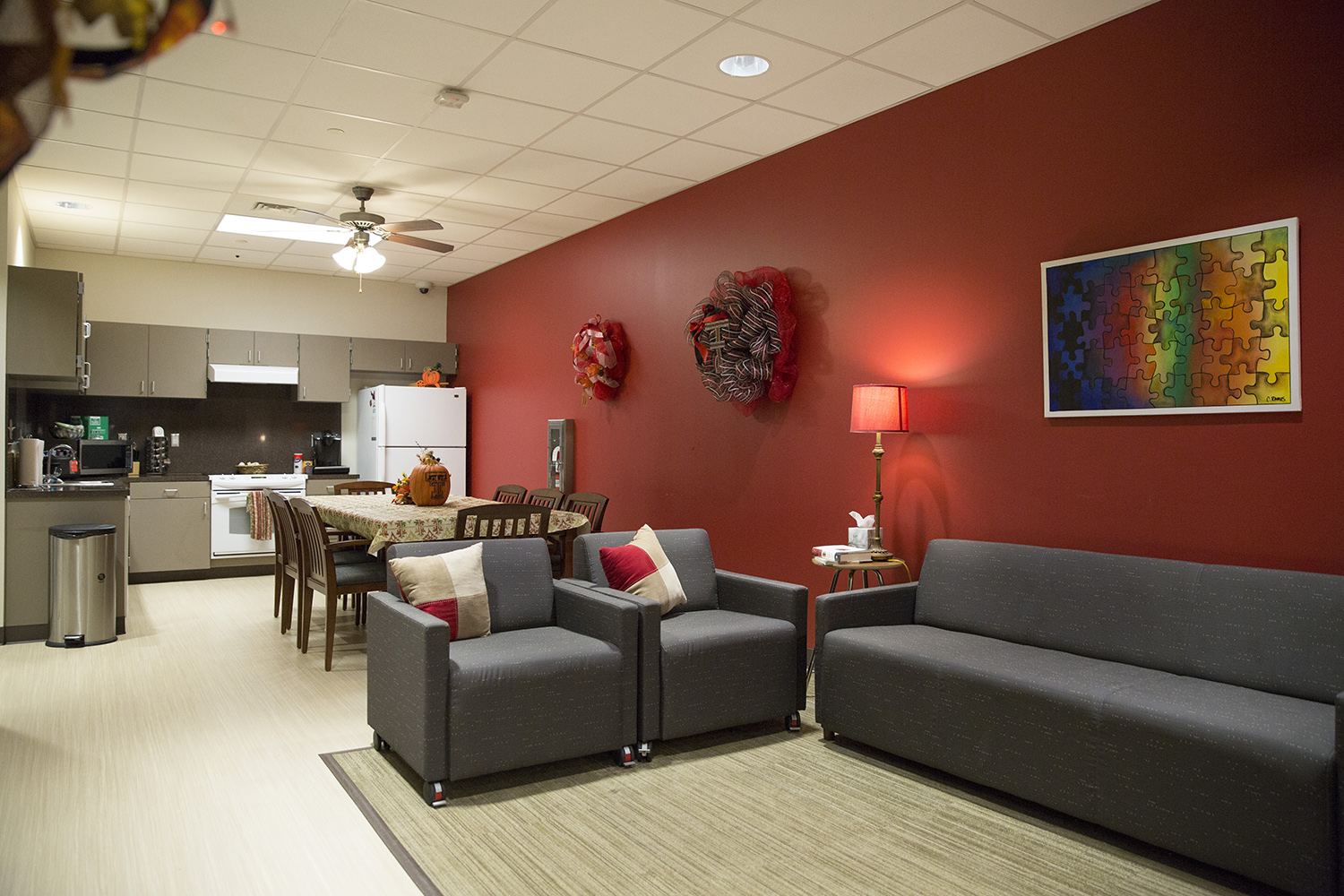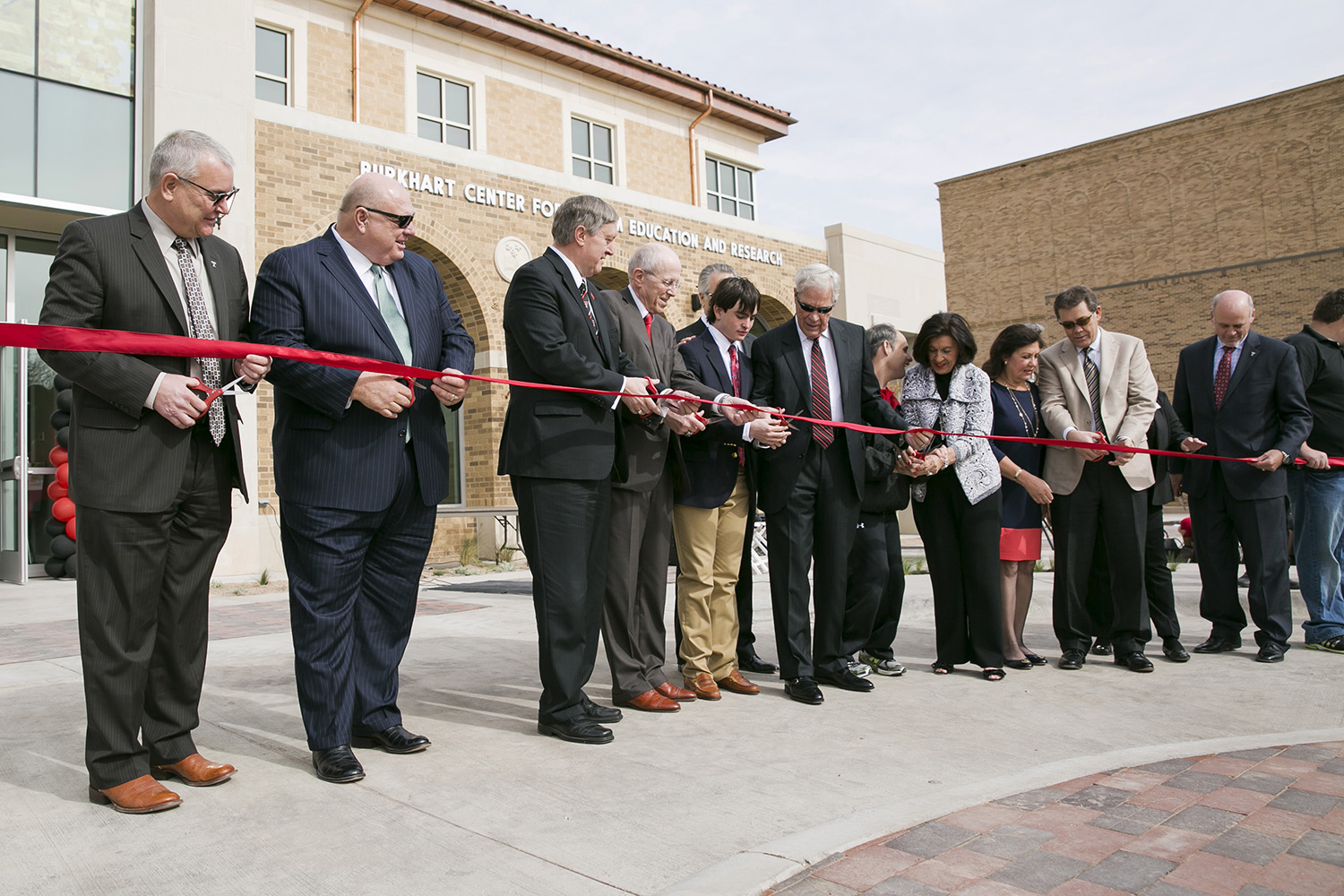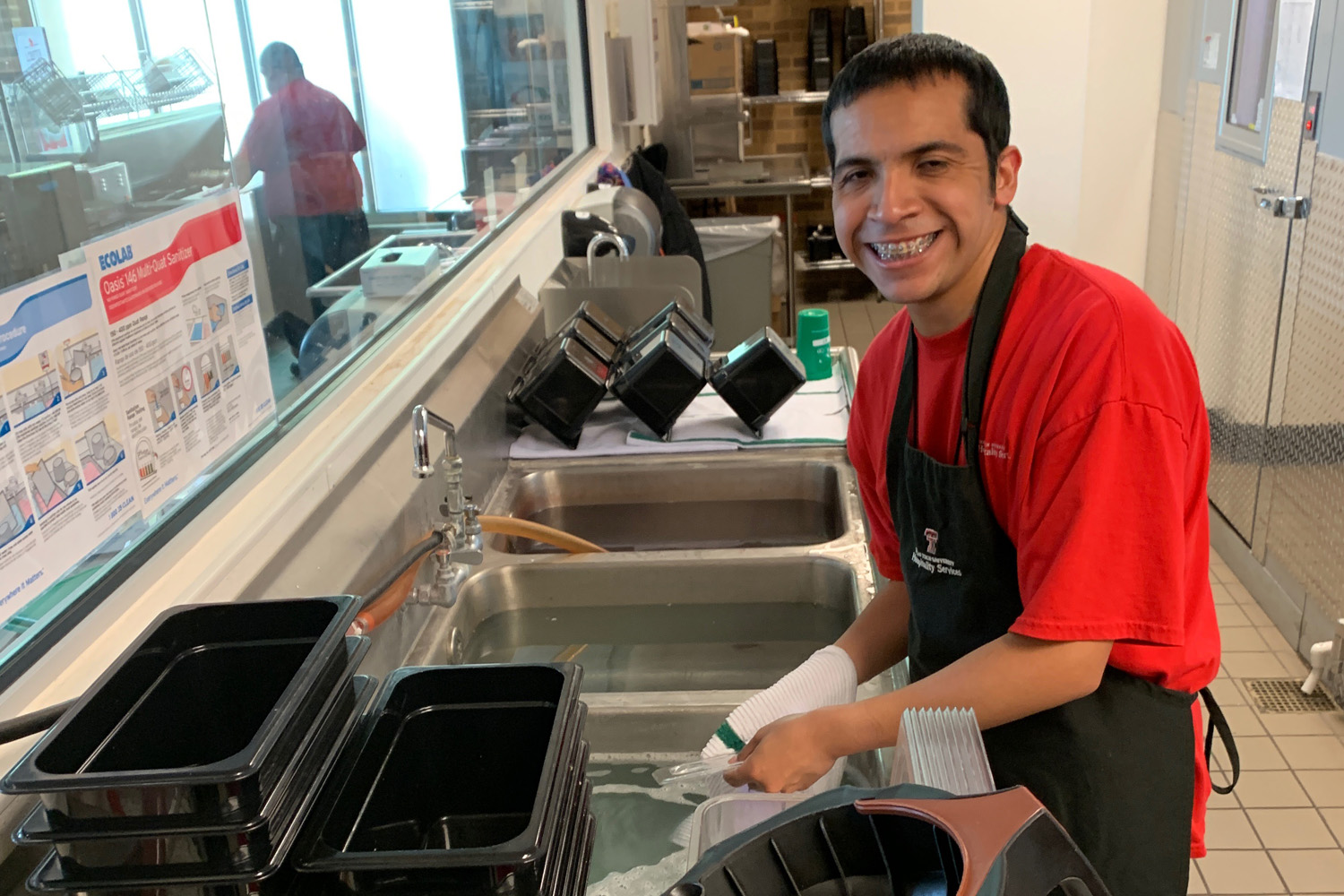Created as a small, teacher-training project in 2003, Texas Tech University’s Burkhart Center for Autism Education & Research has grown into a comprehensive, lifespan center.
This story was originally published on Nov. 7, 2019. In observance of Autism Awareness Month 2020, Texas Tech University is sharing the story again. Due to the coronavirus pandemic, some services mentioned in the story may be temporarily unavailable. For more information, please visit the Burkhart Center for Autism Education & Research website.
Almost 15 years ago, Texas Tech University created a center within the College of Education to improve the lives of people with autism spectrum disorder (ASD).
Compared to today, the disorder was poorly understood. Rural West Texas communities had few educational and professional resources for individuals with ASD and their families.
A vast need existed in the region. Since its creation, the Burkhart Center for Autism Education & Research has grown to meet that need, evolving into a state and national leader along the way.

"There weren't any resources to the south of us," said Robin Lock, a special education professor in the College of Education and former founding co-director of the center. "There wasn't anything all the way through Oklahoma. There wasn't anything in New Mexico until you got all the way to Albuquerque. There was simply no service. It was like our kids were the forgotten ones.
"I think what the Burkhart Center has demonstrated is that age-old, West Texas mentality of, 'We're not going to let you deny us the opportunities for our kids.' We decided if they can have this in Dallas, then we can have it here."
Today, the center offers clinical services to more than 100 clients each month. It also provides hundreds of training and educational opportunities every year to increase awareness of ASD, a condition that impairs social skills and communication and affects millions of people around the world. Earlier this year, the Council of Exceptional Children, one of the largest special education organizations in the world, named the center one of eight national 2019 Thought Leaders in Special Education.
In just the last five years, the center's annual operating budget has more than doubled to $2.3 million. In 2013, the center moved into a new 28,000-square-foot building to house a fast-growing faculty and staff. State agencies have partnered with the Burkhart Center to provide a number of services and trainings. Last year, Faulkner University in Alabama – seeking to start its own autism initiative – used the Burkhart Center as a model.
"It stuns me," said current director Wes Dotson, who started at the center as a researcher in 2010. "I look up sometimes and say, 'How did this happen?'"
A chance meeting
Before it became the region's only comprehensive autism center, the idea to provide services for people with ASD and their families began as just a small, teacher-training project in 2003. It started in a very West Texas way: during a college football game.
At a tailgate on the Texas Tech campus, Jim and Jere Lynn Burkhart, who moved to Lubbock after retiring from their oil business in Oklahoma, happened to sit by Lock. They struck up a conversation, which led to the topic of the Burkhart family's interest in autism.
The Burkharts' grandson, Collin, had been diagnosed with ASD, and they had been dismayed by the lack of knowledge teachers and the general public had about the disorder.
"No one knew much of anything about autism. No one hardly even knew the word autism," Jere Lynn Burkhart said. "We had begun to search for knowledge about what to do for Collin to help him, and there just wasn't much out there."
The initial discussions resulted in a $65,000 gift used to provide training for educators to learn how to work with students with ASD. Teachers from around the South Plains began to travel to Lubbock to receive 10 to 12 weeks of training.
After the training sessions proved to be a success, the project's coordinators went back to the Burkhart family with another idea: A program that would teach people with ASD the life and job skills necessary to be successful after high school.

Heightened anxiety, underdeveloped social skills and repetitive, obsessive behaviors often make it difficult for people on the spectrum to transition into postsecondary education or training. The center could create a program that could help ease these difficulties.
The Burkhart family loved the idea. With their support, the Transition Academy became a reality, and Collin Burkhart was part of the first class. The College of Education hired Janice Magness, a retired special educator from Lubbock Independent School District, to direct the academy.
Accustomed to working with students only in K-12 public school settings, Magness was initially shocked to see the struggle families face after high school.
"Upon graduating from high school, that umbrella of special education is gone. Speech therapy, occupational therapy, physical therapy all goes away," she said. "A lot of parents didn't know where to turn, and they would come to us and say, 'My child just wants to sit at home and play video games.'"
Students in the Transition Academy learn to succeed at job interviews, set doctors'
appointments and use a debit card. As technology has changed, the academy has added
lessons on cell phones and social media.
The program has flourished over the years. Magness and her team have established partnerships with 77 companies and groups around Lubbock to provide opportunities for academy students to participate in internships and gain job experience. She attributes the success to a growing understanding of autism by members of the Lubbock community.
"People see that those with autism are employable and are good workers. At first, that was not the case," Magness said. "Jim and Jere Lynn Burkhart were right. Education has been the difference."
Continued growth
Fueled by more and more private funding and state and federal grants, the project expanded its offerings and was organized into a center in 2005. It also added a program to help students with ASD transition to life as degree-seeking undergraduate students at Texas Tech.
Called Connections for Academic Success and Employment (CASE), the innovative program is one of less than 60 that exist in the country. It boasts a four-year college graduation rate that is more than double the national six-year graduation rate for people with disabilities.
In 2010, Dotson arrived as a postdoctoral researcher and, the next year, started an outpatient clinic to provide therapy and interventions based on applied behavior analysis, the "gold standard" for autism treatment. The clinic also offers mental health and counseling services.
The new additions had the center bursting at the seams. By then, it was still using a couple of converted lounges in the College of Education to house the Transition Academy.
"It's really hard to offer services when you don't have a place that's yours," Dotson said. "Children in our clinic were having tantrums, and we were having to walk them through the College of Education while classes were in session. It was less than ideal."
In 2013, thanks to generous and continued support from the Burkhart family and other donors, the center opened a new, $11-million headquarters. Collin Burkhart cut the ribbon with his grandparents at a ceremony marking the opening.

The state-of-the-art, two-story structure includes office and classroom space as well
as therapy rooms and family consultation areas for the outpatient clinic. Special
lighting and acoustics throughout the building are designed to comfort children with
ASD and help with navigation of the facility.
A mock apartment gives Transition Academy students a place to learn independent-living
skills, and a Quizno's sandwich restaurant doubles as a "working laboratory" where
students can get job experience.
The new building allows for longer service hours and shorter waiting lists. It also has boosted research capacity. Today the center has seven grant-funded research projects, bringing together 27 faculty members from every college on the Texas Tech campus. Projects include working with therapy dogs and examining how a building's lighting levels and design affect individuals with ASD.
The center also continues its work in the local community, training teachers as well as police officers, firefighters and other first responders and maintaining an active calendar of community events. An annual awareness walk has long been organized in Lubbock, and the center also has hosted world-renowned speakers like Temple Grandin, who delivered a free lecture to a crowd of 350 people at the Frazier Alumni Pavilion on Texas Tech's campus.
The next step
As part of the newest generation of Burkhart Center innovation, a new mobile clinic is now serving rural West Texas, providing training and support for families and caregivers in underserved areas.
Essentially a Burkhart Center on wheels, the Mobile Outreach Clinic for Autism is staffed with a licensed mental health provider who can provide diagnostics and services, including autism screenings and counseling. Families who require additional services can be connected to experts and staff at the Burkhart Center in Lubbock.
"I hope people see our commitment to excellence and meaningful outcomes," Dotson said. "We're not afraid to try and do new things to achieve what matters to the families and individuals we serve."
That commitment to excellent outcomes has allowed the center to solidify itself as a state provider for numerous training sessions, programming and services. The Texas Workforce Commission provides funding for families to attend the Transition Academy and CASE, and the Burkhart Center has partnered with the Texas Higher Education Coordinating Board to offer three-day autism trainings at all 20 Education Service Centers in Texas.
"As our students get jobs, that takes a person off the government rolls. It's a win-win," Magness said. "I think the State of Texas also recognizes the tsunami of people who are graduating high school with ASD. Where are these young people going to go? They can't sit home and do nothing. We're trying to put them in a position where they can contribute and lead successful, fulfilling lives."
In 1975, it was estimated that one in 1,500 children had ASD. Today, roughly one in 59 children are diagnosed with ASD, according to the Centers for Disease Control and Prevention. Health officials suspect that is a low number that will only increase with better screening, diagnosis and record keeping.
Dotson said the center is eager to do even more for this growing population on a national level. But, he said, the center needs continued support of donors and the autism community to reach that goal.

"Because we have access to all the resources of a university, we are able to stretch every dollar and do more with less," Dotson said. "We've already made a big impact here in our own backyard. With more funding and support, the sky is the limit."
The future of the Burkhart Center holds a focus on making a national impact, while still continuing to serve the West Texas community, he said.
"We've impacted West Texas, but there is still a lot of work to be done raising the bar at the regional, state and national levels," Dotson said. "I don't feel like we're done."
